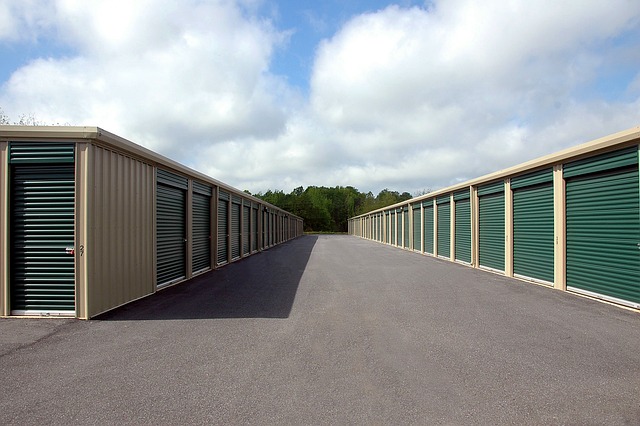Are you considering starting a storage unit business but wondering about the costs involved? The initial investment can vary greatly — influenced by factors like location, size, amenities, and operational expenses. This article will guide you through the financial aspects, whether you’re planning a small-scale operation or a larger franchise.
We’ll break down the key elements that determine start-up costs, providing you with the insights needed to make informed decisions and manage your business effectively. When you’re ready, let’s explore what it takes financially to launch your storage unit venture.
Analyzing the Market
When entering the storage unit business, a thorough market analysis is key. This process involves a deep dive into various aspects, starting with the evaluation of construction and development costs. But that’s not all: it’s equally important to understand your target market. You need to be aware of rental price trends, which can have a significant impact on your income.
Factors such as expected occupancy rate and potential profit margin are also important metrics to consider. These indicators influence your financial projections and your business model that aligns with your goals and market conditions.
In addition to the numbers, a SWOT analysis — the assessment of strengths, weaknesses, opportunities, and threats — provides a comprehensive overview of your business landscape.
AI + Data + CRM = more sales and happier customers.
Start or grow your business with the #1 CRM. Salesforce now has AI tools that helps you connect with your customers in a whole new way.
Creating a Business Plan
Creating a business plan for a warehouse is an important step that requires close attention to several factors that affect the overall cost. To develop a comprehensive business plan, consider the following steps:
- Location Analysis: Evaluate the cost implications of different locations, considering factors like land prices, accessibility, and proximity to potential customers.
- Facility Sizing: Determine the optimal size for your facility based on market demand and budget constraints.
- Material Selection: Choose construction materials that balance cost-effectiveness with durability and security.
- Business Model Development: Decide whether you’ll operate independently or as part of a franchise, and consider the cost differences between these options.
- Financial Forecasting: Prepare detailed projections of start-up costs, ongoing operational expenses, and potential revenue streams.
- Market Strategy: Develop a marketing plan tailored to your target audience, focusing on competitive pricing and visibility.
- Operational Plan: Outline day-to-day operations, including staffing, security measures, and customer service protocols.
- Risk Assessment: Identify potential risks and challenges, and devise strategies to mitigate them.
Making Commerce Better for Everyone
Shopify is supporting the next generation of entrepreneurs, the world’s biggest brands, and everyone in between
Choosing a Location
Choosing the right location for a self-storage facility requires a multi-layered analysis that begins with a market feasibility study. This study should consider demographics, site availability, competition, pricing, and special offerings such as climate control. A self-storage consultant and local broker can be invaluable in this process.
Additionally, site considerations such as accessibility, visibility, traffic volume, and proximity to potential customers are crucial. Prioritize safety to attract tenants and carefully assess land costs, aiming for them to comprise about 25%-30% of your total project budget.
Help your customers find you with a home for your business online. Jimdo has all of the digital tools you need, including a customized, compliant website, an online store that's open 24/7, and more.
Securing Financing
Without a secure wallet, there is no cash flow, and if you want to start a warehouse business, you’ll want to find the financial foundation that will support your vision and turn your plans into reality. Here are some potential options for securing financing:
- Traditional Commercial Loan
- Real Estate Loan
- Construction Loan
- Personal Capital
- Private Investors
Identifying the Necessary Supplies
As mentioned earlier, selecting the right materials and supplies for your storage unit business is crucial, as it balances cost-effectiveness with durability and security. Here’s a list of potential necessary supplies:
- Storage Containers
- Buildings or Units
- Surveillance Cameras
- Access Control Systems
- Transport Vehicles
- Vehicle Storage Equipment
- Security Fencing
- Lighting Systems
- Office Supplies and Equipment
- Maintenance Tools and Equipment
- Signage and Marketing Materials
- Software Systems for Management and Security
- Fire Safety Equipment
Online accounting software, built for your business.
Zoho Books is online accounting software that manages your finances, automates business workflows, and helps you work collectively across departments.
Estimating the Costs
Cost estimation in the storage unit business varies significantly between constructing a new facility and taking over an existing property. New constructions typically involve higher initial investment due to land acquisition, construction, and development costs.
In contrast, acquiring an existing facility might reduce these upfront costs but could entail renovation and modernization expenses. Additionally, operational costs including staff salaries, software for facility management, security systems, and maintenance should be factored into the budget for a realistic financial overview.
Purchasing Equipment and Supplies
Once funding is secured, purchasing equipment and supplies is a critical step. This includes acquiring storage containers, security equipment like cameras and access systems, office supplies, and potentially vehicles for transport services.
Preparing the Facility
Preparing the facility for customers involves more than just construction and setup. It requires ensuring that all security measures are operational, the layout is customer-friendly, and the units are clean and ready for use. This stage also includes setting up office spaces, installing signage, and implementing maintenance routines.
Establishing Policies and Procedures
Before opening your storage unit business, it’s imperative to establish clear policies and procedures. This includes drafting rental agreements, outlining move-in and move-out policies, and setting rules for facility usage. These policies should be legally vetted to protect both the business and its customers.
Additionally, developing procedures for handling late payments, damages, and disputes is essential for smooth operation.
AppSumo is the store for entrepreneurs. We curate essential software deals that every entrepreneur needs to run their business.
Advertising and Promoting the Storage Facility
With the storage facility prepped and policies in place, the next step is advertising and promoting your business to attract customers. This phase is vital for establishing your presence in the market and driving occupancy rates. From online campaigns to local community engagement, each advertising effort plays a key role in building your brand and growing your customer base.
Creating an Easy-to-Use Website
A user-friendly website is essential for attracting and retaining customers in today’s digital age. It should be intuitive, informative, and accessible, providing potential customers with all the information they need about your storage facility.
Key components of a successful website include:
- Easy navigation and user interface
- Customer testimonials and reviews
- Online booking and payment systems
- Contact information and location details
- SEO optimization for better online visibility
- Clear and concise information about services offered
Adding Your Business to Local Directories
This step makes it easier for potential customers in your area to find your business when searching for storage solutions. Key directories to consider are:
- Google My Business
- Yelp
- Bing Places
- Local business chambers and directories
- Industry-specific directories
Note: Adding location-based information helps with on-page SEO (search engine optimization) to further bolster your chances of getting organic traffic.
Local Ads
Local advertising can significantly increase the presence of your business in the community and attract nearby customers. It’s important to use different platforms to reach a wide audience. Some effective local advertising methods include:
- Facebook and social media ads
- Search engine advertising
- Local newspapers and magazines
- Billboards and outdoor advertising
- Community event sponsorships
- Direct mail campaigns
Bring the very best out of your customer-facing teams with robust automation, comprehensive analytics, personalized solutions, and more. Sign up and get started in no time—the fastest implementation in the enterprise CRM market.
The Final Costs
In short, the cost of starting a storage unit business can vary greatly based on several key factors. Location plays a crucial role, as land and construction costs can vary drastically from one area to another.
In addition, the decision between building a new facility or purchasing an existing one will affect the overall budget, with new builds usually requiring a higher initial investment.
Other variables such as the size of the facility, desired equipment, and operating costs also contribute to the final cost. So it’s important to consider these factors carefully to create a realistic financial plan for your storage unit venture, ensuring its long-term success and profitability.
FAQS
How much does it cost to start a storage unit business?
The cost of starting a storage unit business can vary significantly, typically ranging from a few tens of thousands to several million dollars, influenced by factors such as location, size, and whether it involves building a new or purchasing an existing facility.
How profitable is a storage unit business?
A storage unit business can be quite profitable, especially in areas with high demand for storage. Its profitability hinges on factors like location, facility size, operational efficiency, and local market rates.
Is a self-storage facility a good investment?
Yes, a self-storage facility can be a good investment. They often offer stable revenue streams and have historically shown resilience in economic downturns, but success depends on factors such as market saturation, location, and effective management.












